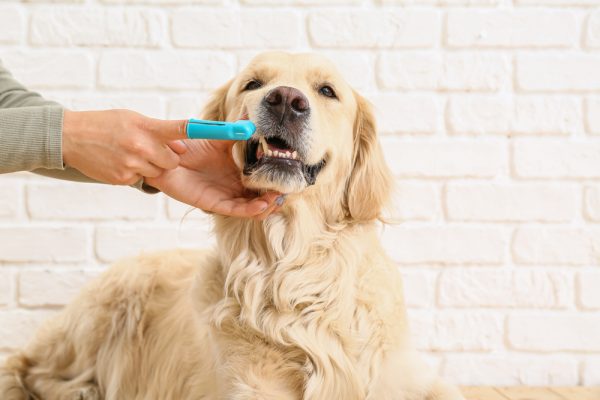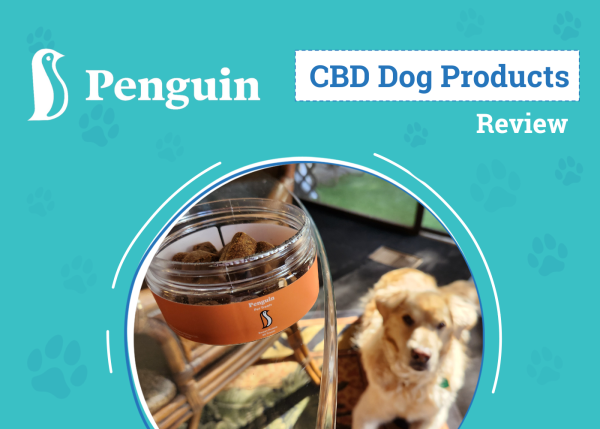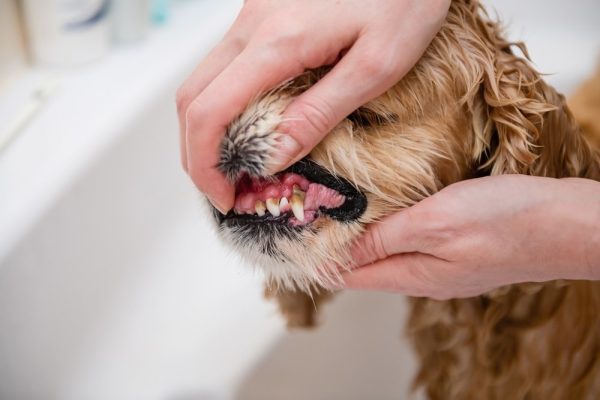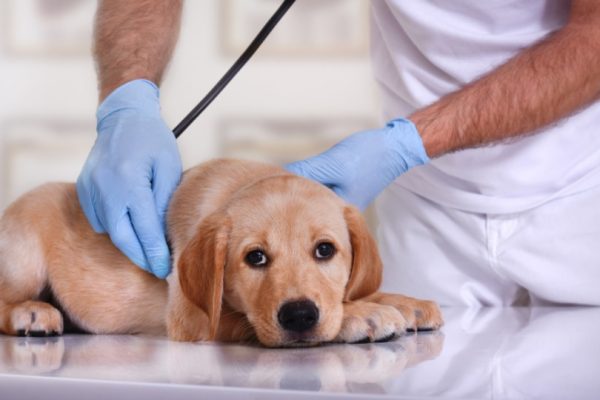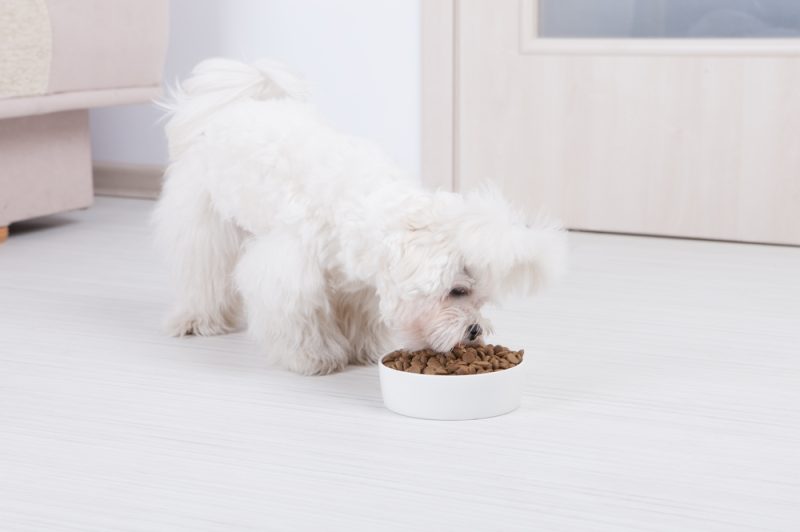In this article
New puppy owners are in for a very packed social schedule with their veterinary clinic. While most already know about staying on top of puppy shots, did you know puppies can also get intestinal worms? Eww, right?
To help with this, puppies have a deworming schedule that veterinarians follow to help treat or prevent these worms which can make them sick.

What Is Dewormer for Dogs?
Dewormer is a medication that kills parasitic worms, usually intestinal worms in this context but there are others like heartworms, kidney worms, lung worms and more. Different dewormers kill a different list of worms.
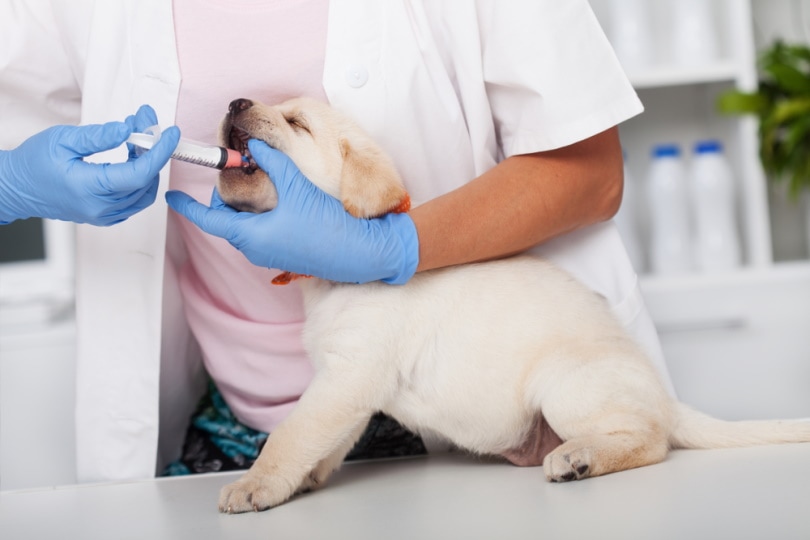
Why Do You Need to Give Your Puppy Dewormer?
Puppies don’t have fully formed immune systems yet and are more prone to picking up intestinal worms than most adult dogs. They can also get them from their mother sometimes, so needing to clear these babies of worms isn’t an uncommon issue.
Some dewormers work with one dose but most need to be given again, sometimes for a few days in a row, sometimes every couple of weeks for several doses. While your veterinarian will often give a dose of dewormer at puppy vaccine or wellness appointments, it isn’t uncommon to be sent home with the additional doses and you’ll want to know how to successfully give this important medication.
How Do Puppies Get Worms?
When we’re talking about worms in puppies, we mean intestinal worms specifically. Puppies get most of them by ingesting fecal matter that has worm larvae in it, which then progress into several larval stages that can migrate to different parts of the body but ultimately end up as adults in the intestines. Once these worms reproduce, they’ll lay more eggs shedding more eggs and more worms in their feces to reinfect themselves and infect other puppies.
Puppies can also be exposed to worms from their pregnant mother or while nursing and worms are often transmissible to many species, so it doesn’t have to be dog fecal matter they ingest to get infected.

What Worms Do Puppies Get and What Do They Do?
There are several types of worms that puppies can get, and different dewormers target different worms.
- Roundworms: Spaghetti-like worms that cause diarrhea and vomiting and steal nutrients
- Whipworms: Smaller worms that can cause damage to the tissue they live in such as the cecum and colon
- Hookworms: Worms that latch onto the intestinal wall and steal blood, these can cause severe anemias if left untreated
- Tapeworms: These can actually be transmitted by ingesting infected fleas and grow into very long, segmented, flatworms
Signs of Worms in Puppies
- Vomiting
- Diarrhea
- Weight loss while eating well
- Lethargy
- Loss of appetite
- Pale gums
- Sudden collapse
- Worms seen in stool
- Moving, rice grain-appearing worm segments called proglottids are seen around the anus, in stool, or left where the puppy has laid

How to Deworm a Puppy
1. Bring your puppy to a veterinarian with a fresh stool sample in hand.
Whether your puppy has signs of worms or not, they will check their stool sample for any worms or eggs, so they know if they need to make a specific deworming choice. If not, they will use a relevant broad spectrum dewormer that can kill most of the common worm types. Usually, they will give the first dose, then they will let you know what to take home. This may be pills or a liquid and they will tell you the dosing schedule.
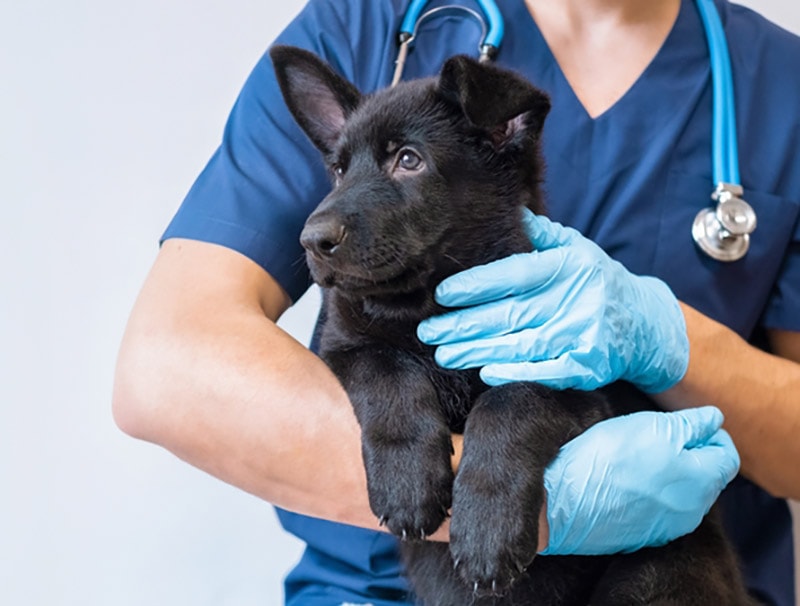
2. Pick a good time to give the dewormer.
Sometimes puppies can have GI upset such as vomiting or diarrhea, even with live worms in it after giving a dose of dewormer. It is best to make sure you’ll be home for a few hours after giving the deworming medication.
3. When it comes time to give your puppy their next deworming dose, check the packaging.
Your veterinarian may have told you exactly how much dewormer to give, or they may have told you how much to give per pound of weight, in which case you need to weigh your puppy. If that’s the case, grab a bathroom scale, if not proceed to step 4. If you have a bathroom scale, first weigh yourself, then weigh yourself holding your puppy also, then subtract yourself out to find your puppy’s weight.
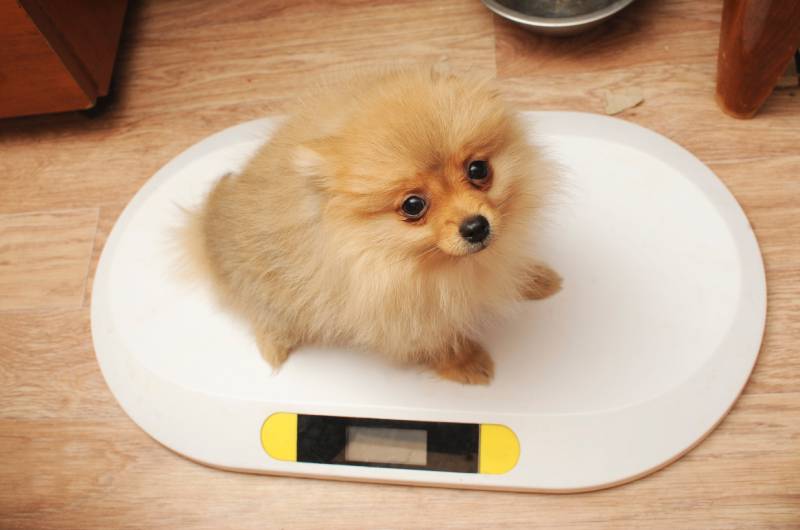
4. Using the instructions and your puppy’s weight, find how much dewormer you need to give.
For tablet dewormers, grab the correct number of tablets. For liquid dewormers, you need to pull up the dewormer into a syringe. The veterinary clinic should have sent you home with the syringe that you need. Remove the top to the bottle of dewormer, insert the tip of the syringe into the bottle if it is sealed, turn the bottle upside down, then draw up the volume of dewormer you’ve been advised to use. If the bottle doesn’t have a seal to insert the syringe into, keep it upright and simply place the syringe into the bottle deep enough to draw up medication instead of air.
5. Collect your puppy on a leash or harness and sit on the ground with them.
A good way to give the dewormer is to ask them to sit and then kneel behind them, using your knees to frame them from behind and your body to keep them from backing up. Puppies can be resistant to sitting still so it may help to bring another person with you to help distract them with attention, treats, toys etc.
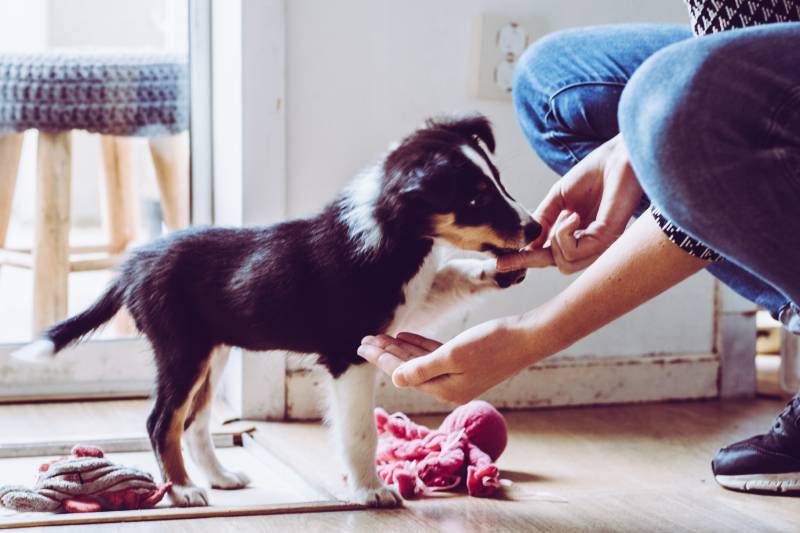
6. Gently grasp your puppy’s muzzle with your non-dominant hand from above, being careful of their teeth.
Pull up to open their mouth, sometimes you’ll need to insert a finger into their mouth from the side to touch their tongue to trigger a gagging-like response in which they try to push out your finger while opening their mouth.
7. Direct their head straight up in the air.
Once the head is tilted up, use your dominant hand either place the deworming tablet(s) to the very back of their tongue or place the syringe of liquid dewormer into their mouth, depressing the plunger and ejecting the medication into their mouth, also towards the back if you can.
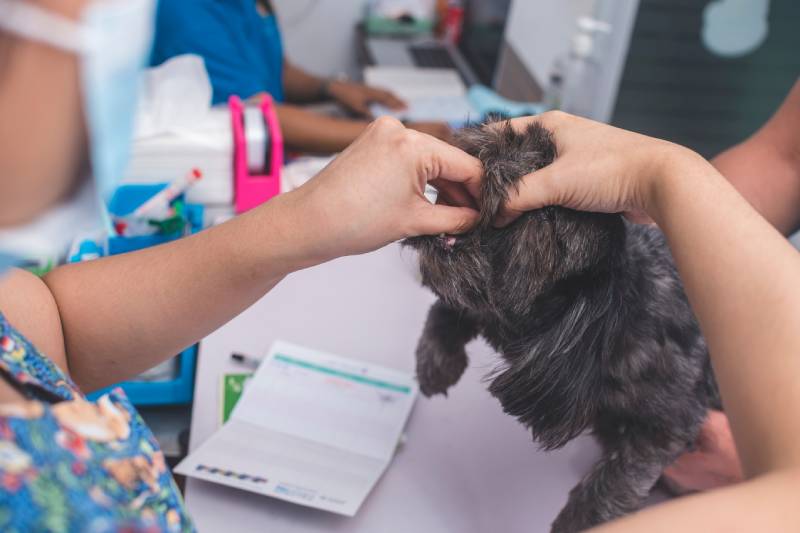
8. Close the puppy’s mouth immediately and keep their head upright.
Sometimes it helps to rub down on their throat, blow on their nose, tempt them with the smell of treats, and distract them with heavy praise to entice them to swallow.
9. Keep hold of the puppy.
After you’re sure your puppy has swallowed, corral them with your arms so they don’t run off but free their head so you can see if they keep the dewormer down. For tablet dewormers in particular, watch carefully for attempts to spit the tablet back out. Try to give it again if this happens until it stays down.

10. Give them praise!
After waiting a few seconds, if they have swallowed their dewormer, give them their treat and lots of praise, they’ve been a very good dog. If there’s a little mess anywhere you can clean this with a little water and a rag as needed.
There are some alternative ways to give dewormers. Of note, some liquid dewormer options can be tasty and it may be worth trying to offer them to your puppy outright as they may readily eat it like a treat. Tablet dewormers can also be hidden in food or pill wrap treats without them knowing in some cases.

Conclusion
Hopefully you now know everything you need to successfully deworm your puppy from diagnosis to treatment. Giving oral medications can take practice but the more positive you make the experience for your puppy, the easier this is as they get older. Take your time, get help if you need, and you’ll be deworming your puppy like a pro in no time.
See Also:
- 150+ Puppy Names: Cute and Popular Ideas
- Are Puppies Born With Worms? Vet-Verified Signs, Treatment & Prevention
Featured Image Credit: Ilike, Shutterstock


